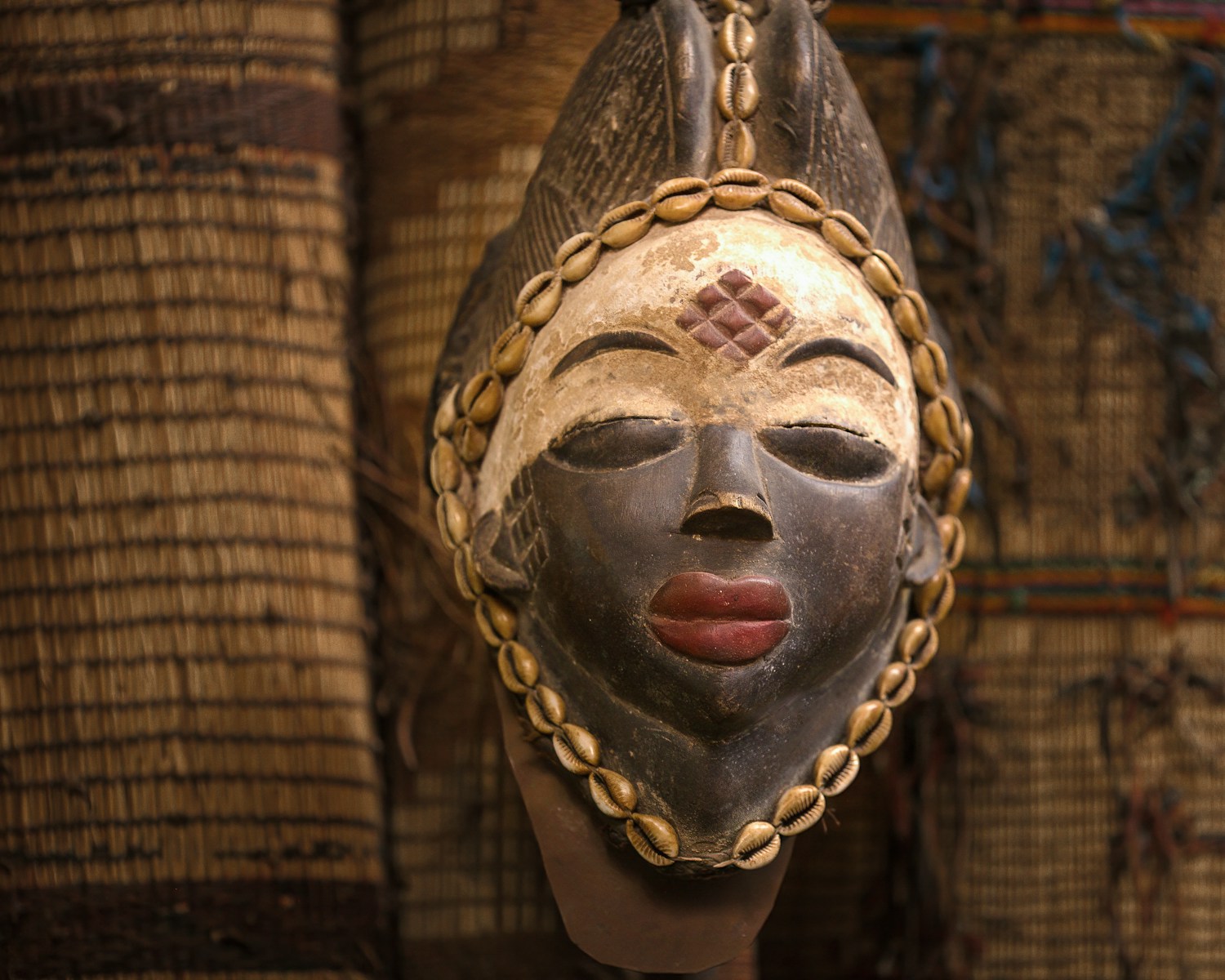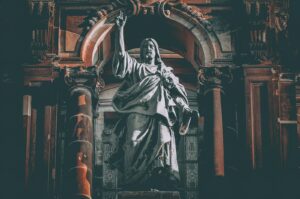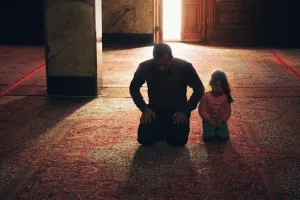Voodoo, also known as Vodou, is a spiritual belief system with roots in West African religious traditions, particularly those of the Fon, Ewe, and Dahomeyan peoples. It encompasses a rich array of rituals, ceremonies, and practices that are deeply intertwined with the natural world and the spiritual realm. Contrary to popular misconceptions, Voodoo is indeed a religion, with its own cosmology, deities, and sacred texts. It provides a framework for understanding the nature of existence, the afterlife, and the interplay between the physical and spiritual realms.
History and Origins of Voodoo
Voodoo originated in the Caribbean, particularly in Haiti, where it evolved as a synthesis of African religious beliefs and Catholicism during the transatlantic slave trade. It draws upon the spiritual practices of various African peoples, incorporating elements of ancestor worship, spirit possession, and divination. Over time, Voodoo spread to other parts of the Americas, including Louisiana and parts of the southern United States, where it adapted and evolved further through cultural exchange and syncretism.
The Impact of the Transatlantic Slave Trade
The transatlantic slave trade played a significant role in the development of Voodoo. Enslaved Africans brought their spiritual beliefs to the New World, where they were forced to adapt to new environments and oppressive conditions. This adaptation led to the syncretism of African religious practices with elements of Catholicism, as enslaved people found ways to preserve their spiritual identities under the guise of Christian worship.
Voodoo in Haiti: A Cultural Cornerstone
In Haiti, Voodoo emerged as a vital cultural force, offering a sense of community and identity to enslaved people. It played a pivotal role in the Haitian Revolution, as practitioners used rituals to inspire and unify the oppressed against colonial powers. The resilience and strength of Voodoo during this time cemented its place as a cornerstone of Haitian culture and identity.
The Core of Voodoo: Beliefs and Rituals
At the heart of Voodoo is a complex cosmology that includes a pantheon of deities, or Loa, each with distinct personalities, domains, and responsibilities. These spirits are not distant deities; they are intimately involved in the daily lives of practitioners, offering guidance, protection, and intervention in worldly affairs. Communication with the Loa is achieved through intricate rituals that include music, dance, and the offering of sacrifices, creating a vibrant, sensory-rich form of worship that is as much about community and connection as it is about spirituality.
Understanding the Loa
The Loa are central to Voodoo practice. Each Loa serves a specific role, from helping with fertility and agriculture to offering protection and wisdom. For instance, Papa Legba is considered the guardian of the crossroads and the intermediary between the spiritual and physical worlds. His presence is invoked at the beginning of ceremonies to open the gateway to the spirit realm.
Rituals as a Form of Communication
Rituals in Voodoo serve as a vital form of communication with the Loa. These ceremonies can vary widely but often include drumming, singing, and dancing to invite the spirits to join the community. The use of traditional music and dance not only honors the Loa but also strengthens community bonds, creating a shared spiritual experience.
Voodoo’s Deep Roots and Widespread Branches
Though often associated with Haiti, Voodoo’s influence and practice extend far beyond, reaching into regions like Louisiana, where it has intermingled with local beliefs and customs to form distinct variants like New Orleans Voodoo. This geographical spread underscores the adaptability and resilience of Voodoo, reflecting the enduring strength and creativity of its practitioners.
New Orleans Voodoo: A Unique Blend
New Orleans Voodoo, sometimes referred to as Louisiana Voodoo, is a distinct tradition that blends African, Haitian, French, Spanish, and Native American influences. It is characterized by its use of gris-gris (protective amulets), voodoo dolls, and its incorporation of Catholic saints. This unique blend highlights the syncretic nature of Voodoo and its ability to adapt to new cultural contexts.
Voodoo in the African Diaspora
Beyond the Americas, Voodoo and its related traditions have spread throughout the African diaspora, influencing spiritual practices in places like Brazil and Cuba. Each region has developed its own interpretation of Voodoo, adapting rituals and beliefs to fit local cultures while maintaining a connection to African roots.
Voodoo’s Ethical Framework and Community Role
Voodoo is not just a system of beliefs and rituals; it encompasses a strong ethical framework that guides practitioners in their daily lives and interactions. Morality in Voodoo is deeply tied to community welfare, emphasizing respect, responsibility, and reciprocity. This communal aspect highlights how Voodoo functions not only as a religion but also as a vital social glue, fostering solidarity and mutual aid among its adherents.
The Importance of Reciprocity
Reciprocity is a fundamental principle in Voodoo, where practitioners believe in the importance of giving back to the community and the spirits. This can take the form of offerings, participation in communal rituals, or helping others in need. Such practices reinforce the interconnectedness of individuals within the Voodoo community.
Community Support Through Voodoo
Voodoo serves as a support system for its practitioners, providing guidance and aid in times of need. Communal ceremonies and rituals offer a space for individuals to seek advice, healing, and comfort, strengthening the bonds between community members and fostering a sense of belonging.
Healing and Medicine in Voodoo Practice
Voodoo practitioners often serve as healers within their communities, using herbs, rituals, and spiritual practices to treat physical, emotional, and spiritual ailments. This holistic approach to healing underscores the interconnectedness of body, mind, and spirit in Voodoo belief, emphasizing the importance of spiritual balance and harmony in overall well-being.
Traditional Healing Practices
Voodoo healers, known as Houngans or Mambos, utilize a variety of traditional methods to address ailments. Herbal remedies are crafted using knowledge passed down through generations, often combining local plants with rituals to enhance their efficacy. Spiritual cleansing and protection rituals are also performed to remove negative energies and restore harmony.
The Role of Spirit Possession in Healing
Spirit possession is another key aspect of healing in Voodoo. During possession, a Loa temporarily takes over the body of a practitioner, offering guidance, wisdom, and healing to those present. This intimate connection with the divine provides a powerful means of addressing both individual and communal issues.
The Role of Voodoo Priests and Priestesses
Central to the practice of Voodoo are the priests (Houngans) and priestesses (Mambos) who serve as mediators between the spiritual and physical worlds. They play critical roles in conducting rituals, offering guidance, and maintaining the traditions and knowledge of the religion. Their leadership ensures the continuity and integrity of Voodoo practices across generations.
Training and Initiation of Voodoo Leaders
Becoming a Houngan or Mambo requires extensive training and initiation. Aspiring leaders undergo rigorous education in the religion’s rituals, history, and ethics. Initiation ceremonies mark their formal acceptance as spiritual leaders, during which they are believed to receive the blessings and powers of the Loa they serve.
The Responsibilities of Voodoo Leaders
Houngans and Mambos hold significant responsibilities within their communities. They are tasked with guiding their followers in spiritual matters, leading ceremonies, and providing healing and counsel. Their role as keepers of tradition is crucial for preserving the cultural and spiritual heritage of Voodoo.
Voodoo’s Adaptability and Syncretism
One of the defining characteristics of Voodoo is its adaptability and capacity for syncretism—the blending of different religious and cultural elements. This has allowed Voodoo to incorporate aspects of Christianity and other religions, demonstrating its fluidity and the ability of its practitioners to find common ground with a range of spiritual beliefs.
Syncretism with Christianity
The syncretism of Voodoo with Christianity is most evident in the incorporation of Catholic saints, who are often equated with the Loa. For example, St. Peter is associated with Papa Legba, reflecting their roles as gatekeepers. This blending allows practitioners to navigate dual religious identities, honoring both their ancestral traditions and imposed religious structures.
The Role of Syncretism in Voodoo’s Survival
Syncretism has been vital to the survival of Voodoo, enabling it to endure despite historical oppression and persecution. By adopting elements of dominant religions, Voodoo practitioners have preserved their spiritual practices while creating a unique, resilient faith that continues to thrive today.
Cultural and Artistic Expression in Voodoo
Voodoo is also a profound source of artistic expression, influencing music, dance, and visual arts within and beyond its communities. The vibrant ceremonies, rich symbolism, and rhythmic music of Voodoo have contributed to a unique cultural aesthetic that resonates with themes of spirituality, resistance, and identity.
Music and Dance in Voodoo Ceremonies
Music and dance are integral to Voodoo ceremonies, serving as both a form of worship and a means of invoking the Loa. Traditional drums, known as tambou, provide a rhythmic foundation, while songs and dances tell stories of the spirits and the community’s history. This expressive art form fosters a deep connection between participants and the spiritual realm.
Voodoo in Visual Arts
Voodoo’s influence extends to visual arts, where its symbols and themes are depicted in paintings, sculptures, and crafts. Artists often draw upon Voodoo imagery to explore concepts of identity, resistance, and spirituality, creating works that celebrate the religion’s rich cultural heritage.
Challenging Stereotypes: The Real Voodoo
Despite its depth and richness, Voodoo has been consistently misunderstood and misrepresented, reduced to a caricature of curses and zombies in popular media. This sensationalism belies the true nature of Voodoo, which is a religion of beauty, complexity, and profound spiritual depth. By moving beyond the stereotypes and engaging with Voodoo in its genuine context, we can appreciate its role as a source of strength, identity, and cultural continuity for its followers, and as a fascinating and valuable component of the global religious landscape.
Misconceptions and Media Portrayals
The portrayal of Voodoo in media often emphasizes the sensational and supernatural, overshadowing its true spiritual and cultural significance. These misconceptions perpetuate fear and misunderstanding, contributing to the stigmatization of Voodoo practitioners. Educating the public about the authentic practices and beliefs of Voodoo is essential for combating these stereotypes.
Engaging with Voodoo’s True Essence
To truly understand Voodoo, one must engage with its practitioners and participate in its ceremonies with an open mind. By experiencing Voodoo firsthand, individuals can gain insight into its profound spiritual depth and the rich cultural heritage it represents. This engagement fosters respect and appreciation for Voodoo as a legitimate and meaningful religious tradition.
Preservation and Global Recognition of Voodoo
In recent years, there has been a growing movement to preserve and celebrate Voodoo as an integral part of cultural heritage, particularly in places like Haiti and New Orleans. This recognition reflects a broader understanding and appreciation of Voodoo’s significance in the cultural tapestry of the African diaspora and its contributions to global culture.
Efforts in Cultural Preservation
Efforts to preserve Voodoo include cultural festivals, educational programs, and the documentation of rituals and oral histories. These initiatives aim to safeguard Voodoo’s traditions and promote a deeper understanding of its role within the broader context of world religions.
Voodoo’s Place in the Global Religious Landscape
As Voodoo gains recognition, it is increasingly acknowledged as a valuable component of the global religious landscape. Its unique blend of African traditions and new world adaptations provides a rich case study in cultural resilience and religious syncretism, offering insights into the dynamic nature of faith and spirituality across cultures.
By diving deeper into the complexities of Voodoo, we uncover a religion that is not only diverse and adaptable but also deeply intertwined with the cultural identities of its practitioners. Embracing its authentic narrative allows us to appreciate the beauty and depth of Voodoo beyond the myths and stereotypes, celebrating it as a vibrant and enduring spiritual path.




